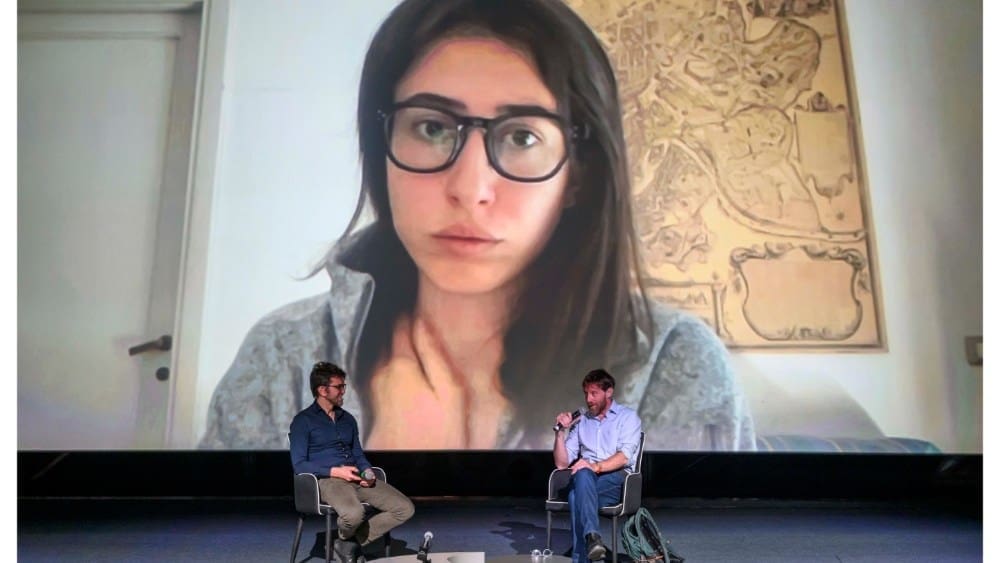Cecilia Sala, an Italian journalist and podcaster, has found herself in an unexpected predicament. Arrested in Iran, she faces confinement in Tehran’s Evin prison, notorious for housing political prisoners. Italian authorities are on high alert, diligently working to secure her release. The specifics behind Sala’s arrest remain uncertain, leaving many questions unanswered.
Arriving in Tehran with a valid journalist visa, Sala’s journey took a dramatic turn. She was scheduled to return to Italy on December 20, but her arrest on the 19th derailed those plans. With silence surrounding the charges against her, Sala’s story continues to unfold, capturing international attention.
The Arrest That Shook Italy
The news of Cecilia Sala’s arrest sent shockwaves through Italy, putting a spotlight on the delicate diplomatic ties between Rome and Tehran. Italian Defense Minister, Guido Crosetto, expressed outrage, labeling the arrest ‘unacceptable.’ The Italian government is leveraging every diplomatic channel to bring her home, but the lack of clear charges complicates their efforts.
While the arrest only came to light days after it occurred, it’s believed that Italian officials, along with Sala’s family, initially chose to keep matters quiet. Their intent was to negotiate a swift release without drawing public attention. However, as time dragged on, silence was no longer an option.
Mysteries and Speculations
Sala’s arrest has been shrouded in mystery, with no official statement from Iranian authorities. Some speculate it could be linked to recent diplomatic tensions. Just weeks earlier, a top Italian diplomat was summoned by Iran over the detention of Iranian nationals in Italy. This diplomatic backdrop adds another layer of complexity to Sala’s situation.
Given her recent activities in Iran, some believe her arrest could be linked to her podcasting work. Sala was reportedly producing episodes on sensitive topics, including the controversial imprisonment of Iranian comedian Zeinab Mousavi. Mousavi, known as ‘Empress Kuzcooo,’ has also faced severe charges.
The Journalist’s Recent Work
Sala had been in Tehran conducting interviews and preparing podcasts, reportedly about topics sensitive to the Iranian regime. Her visit was marked by a series of interviews she conducted, seeking voices that are often underrepresented in mainstream media.
Sala’s podcast, ‘Stories,’ which has grown popular for its incisive takes and in-depth reporting, often covers politically charged topics. Her latest focus on Iranian voices, especially those imprisoned for defying strict cultural norms, might have triggered actions from the authorities.
It’s speculated that such content could have been seen as provocative by Iranian officials. Sala’s commitment to uncovering unheard stories was no secret, and her arrest raises questions about press freedom and censorship.
Voice of the Opposition
The arrest also pushed opposition leaders in Italy to demand immediate government action. Elly Schlein, head of the Democratic Party, urged officials to clarify Sala’s arrest and expedite her release.
‘We call on the government to leave no stone unturned in bringing Cecilia back home,’ Schlein stated firmly. Her voice echoes the concerns of many Italians worried about Sala’s safety and the implications this could have on journalism.
The Role of Social Media
As news of Sala’s arrest spread, social media platforms became a hub of support and information. Italian and international journalists have been vocal in their calls for her release, amplifying Sala’s situation.
Platforms like X (formerly Twitter) have been instrumental in spreading awareness and rallying support. Posts from fellow journalists, politicians, and citizens highlight Sala’s plight, making it harder for the issue to be swept under the rug.
Social media has proven to be a powerful tool in advocating for press freedom. Sala’s case is a stark reminder of the risks faced by journalists worldwide, regardless of their nationality.
Diplomatic Efforts in Motion
The Italian government is reportedly pulling out all the stops to ensure Sala’s safe return. Diplomatic channels have been buzzing, with efforts to involve international partners in advocating for her release.
While these efforts are ongoing, the lack of transparency from Iranian officials presents a significant hurdle. Italian diplomats are working tirelessly, but the path to Sala’s freedom remains uncertain.
This situation underscores the fragility of diplomatic relations, where the fates of individuals like Sala can hinge on larger geopolitical dynamics.
International Reactions
Beyond Italy, Sala’s arrest has caught the attention of international media outlets. Reports and editorials highlight the delicate balance between diplomacy and human rights.
Other European nations are watching closely, as the outcome could set a precedent for handling such cases in the future. This heightened scrutiny might pressure Iran to reconsider its stance, given the global media focus.
Statements of support from international journalist organizations emphasize the importance of press freedom and the need for transparency in such detentions. The eyes of the world are on this case.
What Lies Ahead for Sala
As of now, Sala remains in Evin prison, with her future uncertain. Italian authorities are hopeful for a resolution but acknowledge the challenges ahead.
Her case represents broader issues of press freedom and the dangers faced by journalists who dare to report from regions with repressive regimes.
Conclusion
Cecilia Sala’s situation serves as a poignant reminder of the risks journalists face in the pursuit of truth. Her case has stirred not only national but international discourse on press freedom. Italian efforts continue unwavering, aiming for a swift resolution that ensures Sala’s safety, reinforcing the critical role of free press in our world.
Cecilia Sala’s story underscores the persistent challenges in global journalism. Her plight not only highlights individual courage but also the need for diplomatic vigilance in securing press freedom.
Source: Variety







